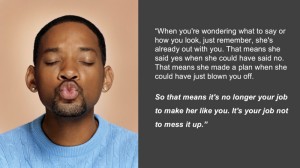Hello and welcome to Modern CEO! I’m Stephanie Mehta, CEO and chief content officer of Mansueto Ventures. Each week this newsletter explores inclusive approaches to leadership drawn from conversations with executives and entrepreneurs, and from the pages of Inc. and Fast Company. If you received this newsletter from a friend, you can sign up to get it yourself every Monday morning.
The socially conscious individual has given way to a “me over we” consumer who favors brands that deliver personal value over societal value, according to new research from the Weber Shandwick Collective (TWSC).
The report, “What We Value: The Primacy of Personal,” used quantitative and qualitative research to understand what people around the world want from brands, products, and companies. Three out of four respondents say what they value most has changed in the past five years, with the shock and aftereffects of the COVID-19 pandemic being the No. 1 reason for the shift. After practical considerations, such as utility and value for their money, consumers ranked “personal emotional value” as two times more important to them than societal or social value.
The research, which TWSC shared exclusively with Modern CEO, suggests a retreat from the conscious consumerism movement, in which social, ethical, and environmental considerations guide buying decisions. It also reflects an undercurrent of “me-centricity” that’s playing out in elections and attitudes around the world, says Gail Heimann, CEO of TWSC. “What we’re seeing in the data is mirrored in society to some degree,” she says. “We’re at the beginning of [seeing] something that is a very large force in our world.”
Joy Farber Kolo, global chief brand officer for TWSC, is quick to point out that the research doesn’t absolve companies from making social commitments or being good stewards of the planet. Brands need to “understand the lens of your audiences,” she says. “At the end of the day, when people make choices, what motivates them?”
Here are five highlights from the report (the boldface language reflects the headings TWSC assigned to each):
I asked Farber Kolo for an example of a company that has embraced the primacy of the personal, and she credited consumer packaged goods giant Kellanova (formerly Kellogg Company) with “seeking to truly understand micro-communities,” producing activations such as a collaboration between Pringles and The Caviar Co. and the Cheez-It Stop Tour, which speak to personal emotional value and experiences, which consumers say they value more than status.
For Farber Kolo, the lesson to executives is clear. “Business leaders and brand builders need a deep and more nuanced understanding of an often complex tapestry of audiences,” she says. “If you want people to buy from you, invest in you, vote for you, work for you, believe in you, you have to know how to contribute value to them and their communities.”
I’ll be interested to see if the rise of the personal is reflected in Fast Company’s 2024 Brands That Matter program, which recognizes companies for communicating and demonstrating brand purpose. Applications for this prestigious—and fun—list of the world’s leading brands open this week, and for the first time, the editors of Fast Company will recognize chief marketing officers for their leadership and contributions.
Are your companies and organizations seeing a shift in what customers value? Do you agree that we’re at the start of a larger societal shift, and if so, how are you responding to these changes?
(13)
Report Post








